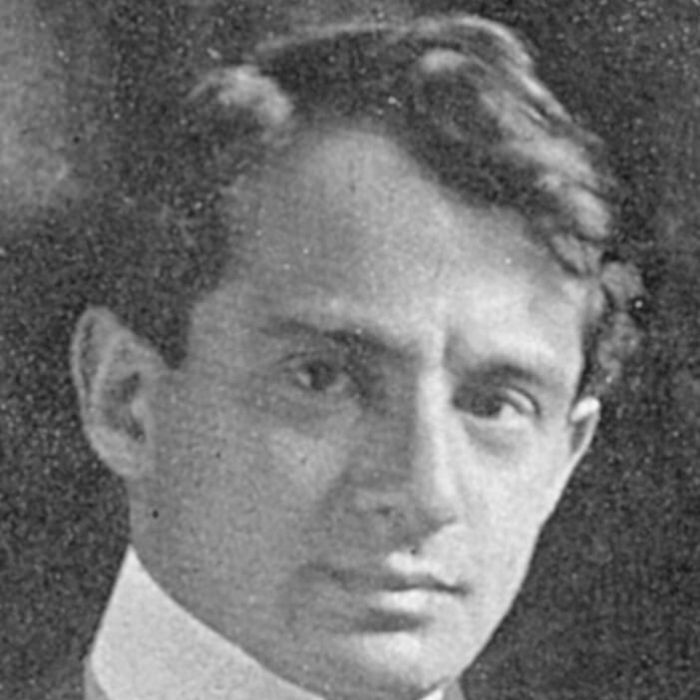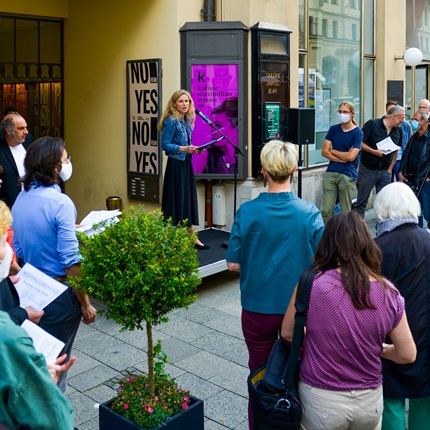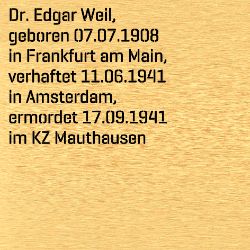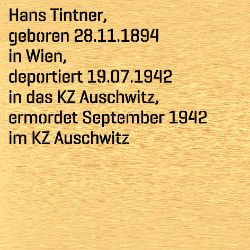Julius Peter Seger was born on September 28, 1876 in the Bohemian town of Krinetz (today Křinec). He was the son of Adolf Seger, a man of private means, and his wife Katharina. Having trained in Vienna as an actor, Julius Seger moved to Munich in 1906 and from 1912 was engaged at the Schauspielhaus in Maximilianstraße. During the First World War he fought on the front for two years and subsequently returned to Munich. In 1925 he switched theatres and moved to the Münchner Kammerspiele. Although highly-rated as an actor, he was never cast in a lead role. Many Jewish actors emigrated after the Nazi seizure of power; Julius Seger, aged 56, decided to stay. In May 1933 he converted to the Catholic faith. On May 6, 1933 Julius Seger commenced his role as butler in the premiere of the drama “Spiel um den Staat” by Josef Wenter. They were his last performances. In July 1933, Hermann Esser, head of the State Chancellery and president of the Bavarian Landtag, assured the Münchner Kammerspiele theatre that the director Otto Falckenberg could remain in his post although a target of Nazi hostility ‒ on the condition however “that Jews be no longer engaged by the Kammerspiele.” For the season of 1933/34 the theatre tried to support Julius Seger on a monthly basis. Julius Seger was drafted in to perform forced labor by the early 1940s at the latest, assigned for instance to the construction gang working at the “Judensiedlung” (“Jewish Quarter”) Milbertshofen. On July 17, 1942 the Gestapo (Secret Police) and SS deported him and 49 other Jews to the Theresienstadt ghetto. On December 18, 1943 the SS transported Julius Seger to the Auschwitz extermination camp. His last sign of life was a letter from Auschwitz dated June 9, 1944. Julius Seger was presumably murdered in the summer of 1944.(text Janne and Klaus Weinzierl, editor C. Fritsche, translation P. Bowman)







-Rowohlt_image.jpg/jcr:content/EZ_BILD_14583.jpg)

